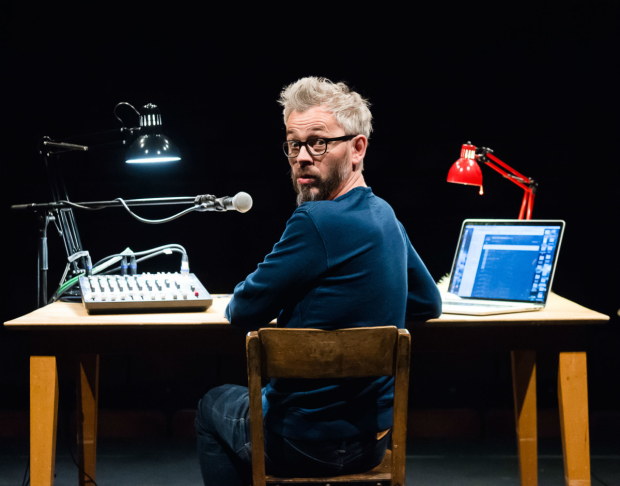Edinburgh review: The Duke (Pleasance Courtyard)
You’ll not find a show with a bigger heart at the Fringe this year

Shôn Dale-Jones is the Fringe’s resident optimist. The Welshman’s usual alter-ego, Hugh Hughes, personifies wonder. He delights in life’s littlest things. Lately though, as radio reports of the refugee crisis cut into his days, Dale-Jones has struggled to hold onto that outlook – "no longer able to see the world I once did." Hugh Hughes isn’t here this year.
The Duke questions the value of art – not just what it’s worth, but whether it’s worthwhile. Performed for free, it’s just Dale-Jones at a desk with a story; a show that spins something from nothing.
It fuses three threads of his life together. Weighed down by the world, Dale-Jones is trying to finish a screenplay; an adaptation of his old Fringe show Floating that’s taken a decade of his life. His investors want changes – big changes. Not beaches, but rooftop pools; not the Anglesey, but Manhattan. As many Audi TT Coupes as he can cram in. Big changes mean big bucks, but big bucks mean big changes.
In 1974, Dale-Jones’ father paid £750 – about £8,000 in today’s terms – for a Royal Worcester porcelain of the Duke of Wellington on horseback. One of a set of four, it stayed wrapped in sponge under his bed, slowly accumulating value. A decade after his death, his wife calls her son. "I’ve only gone and broken the Duke," she flusters.
Despite that looming script deadline, Dale-Jones tries to track down a replacement – a treasure hunt driven not by financial value, but sentimental value. Along the way, as investors and collectors appear alongside friends and family, it turns that question of art’s value over and over, inside and out.
Dale-Jones has long treasured a line by Louis Buñuel: "Fantasy and reality are equally personal, and equally felt, so their confusion is only a matter of relative importance." The Duke blends the two beautifully; a case of form and content combining. Just as current events intrude on his headspace, his story swirls fact into fiction, stretching a truth to improbable lengths. His lightness of touch means you can’t see the divide, and he recounts every moment with such urgency and investment that the distinction becomes irrelevant. Both are equally felt.
That’s Dale-Jones’ secret; how he lifts life’s gloom for a while. He makes the real world seem wondrous and, in that, The Duke is its own antidote: art that alleviates, but also art that does its bit. Rather than presuming to lecture and guilt-trip us, it gently sets us thinking, then provides buckets for donations to Save the Children. This is art that practices its preaching: made for nothing, but doing something. And delighting as it does, just as art should. You won’t find a show with a bigger, better heart anywhere on the Fringe.
The Duke runs at the Pleasance Courtyard at 3.30pm until 29 August (except 15), then transfers to the Unicorn and the Royal Court in the autumn.












